Filter by
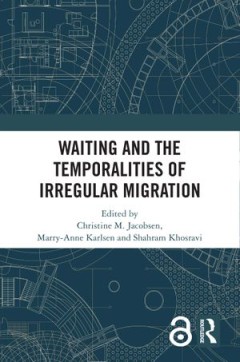
Waiting and the Temporalities of Irregular Migration
This edited volume approaches waiting both as a social phenomenon that proliferates in irregularised forms of migration and as an analytical perspective on migration processes and practices. Waiting as an analytical perspective offers new insights into the complex and shifting nature of processes of bordering, belonging, state power, exclusion and inclusion, and social relations in irregular…
- Edition
- -
- ISBN/ISSN
- 9781000225259
- Collation
- -
- Series Title
- -
- Call Number
- 304.8 KAR w
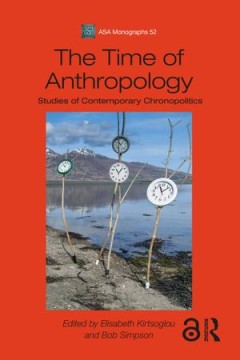
The Time of Anthropology: Studies of Contemporary Chronopolitics
The Time of Anthropology provides a series of compelling anthropological case studies that explore the different temporalities at play in the scientific discourses, governmental techniques and policy practices through which modern life is shaped. Together they constitute a novel analysis of contemporary chronopolitics. The contributions focus on state power, citizenship, and ecologies of time t…
- Edition
- -
- ISBN/ISSN
- 9781000185805
- Collation
- -
- Series Title
- -
- Call Number
- 301 TIM t
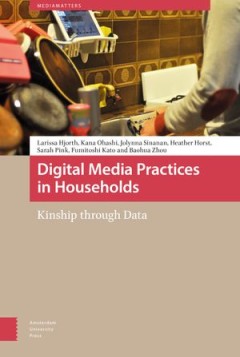
Digital Media Practices in Households Kinship through Data
How are intergenerational relationships playing out in the digital rhythms of the household? Through extensive fieldwork in Tokyo, Shanghai and Melbourne, this book ethnographically explores how households are being understood, articulated and defined by digital media practices. It explores the rise of self-tracking, quantified self and informal practices of care at distance as part of contempo…
- Edition
- -
- ISBN/ISSN
- 9789048542062
- Collation
- -
- Series Title
- -
- Call Number
- -

Leitbilder der Alterssicherung : Deutschland und Niederlande im Vergleich
Der gegenwärtige Diskurs um den Umbau des Sozialstaates wird von Finanzierungs- und Leistungsaspekten dominiert. Fragen der Prinzipien, nach denen die Sicherungssysteme gestaltet sind oder gestaltet werden sollen, treten demgegenüber meist in den Hintergrund. Die vorliegende Studie versucht hier eine Lücke zu schließen: An historischem Material - von der Konstitution bis zur großen Reform …
- Edition
- -
- ISBN/ISSN
- 9783825897222
- Collation
- -
- Series Title
- -
- Call Number
- -
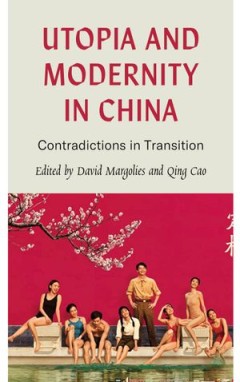
Utopia and Modernity in China : Contradictions in Transition
The contradictions of modernisation run through the whole of modern Chinese history. The abundance of manufactured goods being sold in the west attests to China’s industrial revolution, but this capitalist vision of 'utopia' sits uneasily with traditional Chinese values. It is also in conflict with the socialism that has been the bedrock of Chinese society since the foundation of the People�…
- Edition
- -
- ISBN/ISSN
- 9781786808349
- Collation
- -
- Series Title
- -
- Call Number
- -
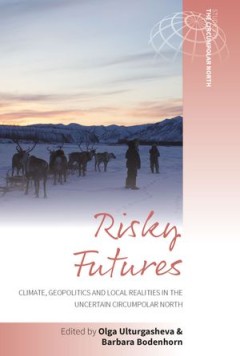
Risky Futures : Climate, Geopolitics and Local Realities in the Uncertain Cir…
The volume examines complex intersections of environmental conditions, geopolitical tensions and local innovative reactions characterising ‘the Arctic’ in the early twenty-first century. What happens in the region (such as permafrost thaw or methane release) not only sweeps rapidly through local ecosystems but also has profound global implications. Bringing together a unique combination of …
- Edition
- -
- ISBN/ISSN
- 9781805390640
- Collation
- -
- Series Title
- -
- Call Number
- -
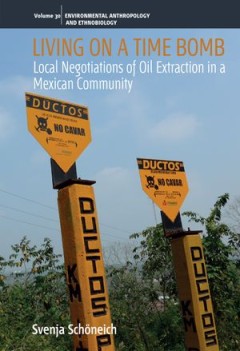
Living on a Time Bomb : Local Negotiations of Oil Extraction in a Mexican Com…
Providing a holistic understanding of extensive oil extraction in rural Mexico, this book focuses on a campesino community, where oil extraction is deeply inscribed into the daily lives of the community members. The book shows how oil shapes the space where it is extracted in every aspect and produces multiple uncertainties. The community members express these uncertainties using the metaphor o…
- Edition
- -
- ISBN/ISSN
- 9781800737433
- Collation
- -
- Series Title
- -
- Call Number
- -
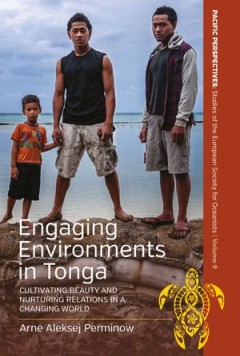
Engaging Environments in Tonga : Cultivating Beauty and Nurturing Relations i…
On March 11, 2011, a tsunami warning was issued for Tonga in Polynesia. On the low and small island of Kotu, people were unperturbed in the face of impending catastrophe. The book starts out from the puzzle of peoples’ responses and reactions to this warning as well as their attitudes to a gradual rise of sea level and questions why people seemed so unconcerned about this and the accompanying…
- Edition
- -
- ISBN/ISSN
- 9781805390657
- Collation
- -
- Series Title
- -
- Call Number
- -
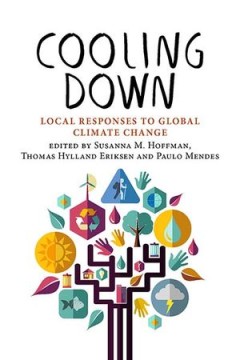
Cooling Down : Local Responses to Global Climate Change
Climate change is a slowly advancing crisis sweeping over the planet and affecting different habitats in strikingly diverse ways. While nations have signed treaties and implemented policies, most actual climate change assessments, adaptations, and countermeasures take place at the local level. People are responding by adjusting their practices, livelihoods, and cultures, protesting and migratin…
- Edition
- -
- ISBN/ISSN
- 9781800731899
- Collation
- -
- Series Title
- -
- Call Number
- -
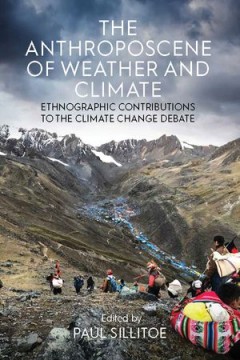
The Anthroposcene of Weather and Climate : Ethnographic Contributions to the …
While it is widely acknowledged that climate change is among the greatest global challenges of our times, it has local implications too. This volume forefronts these local issues, giving anthropology a voice in this great debate, which is otherwise dominated by natural scientists and policy makers. It shows what an ethnographic focus can offer in furthering our understanding of the lived realit…
- Edition
- -
- ISBN/ISSN
- 9781800732780
- Collation
- -
- Series Title
- -
- Call Number
- -
 Computer Science, Information & General Works
Computer Science, Information & General Works  Philosophy & Psychology
Philosophy & Psychology  Religion
Religion  Social Sciences
Social Sciences  Language
Language  Pure Science
Pure Science  Applied Sciences
Applied Sciences  Art & Recreation
Art & Recreation  Literature
Literature  History & Geography
History & Geography